|
For the past few months, we have ended the month with the staff of the Catholic Apostolate Center sharing with you words of joy and where it is that we find joy in our faith. This month we invite you to read Pope Francis’ thoughts on joy and faith which he shared in his Palm Sunday Homily, March 24th 2013.
“Jesus enters Jerusalem. The crowd of disciples accompanies him in festive mood, their garments are stretched out before him, there is talk of the miracles he has accomplished, and loud praises are heard: “Blessed is the King who comes in the name of the Lord. Peace in heaven and glory in the highest!” (Lk 19:38). Crowds, celebrating, praise, blessing, peace: joy fills the air. Jesus has awakened great hopes, especially in the hearts of the simple, the humble, the poor, the forgotten, those who do not matter in the eyes of the world. He understands human sufferings, he has shown the face of God’s mercy, and he has bent down to heal body and soul. This is Jesus. This is his heart which looks to all of us, to our sicknesses, to our sins. The love of Jesus is great. And thus he enters Jerusalem, with this love, and looks at us. It is a beautiful scene, full of light - the light of the love of Jesus, the love of his heart - of joy, of celebration. At the beginning of Mass, we too repeated it. We waved our palms, our olive branches. We too welcomed Jesus; we too expressed our joy at accompanying him, at knowing him to be close, present in us and among us as a friend, a brother, and also as a King: that is, a shining beacon for our lives. Jesus is God, but he lowered himself to walk with us. He is our friend, our brother. He illumines our path here. And in this way we have welcomed him today. And here the first word that I wish to say to you: joy! Do not be men and women of sadness: a Christian can never be sad! Never give way to discouragement! Ours is not a joy born of having many possessions, but from having encountered a Person: Jesus, in our midst; it is born from knowing that with him we are never alone, even at difficult moments, even when our life’s journey comes up against problems and obstacles that seem insurmountable, and there are so many of them! And in this moment the enemy, the devil, comes, often disguised as an angel, and slyly speaks his word to us. Do not listen to him! Let us follow Jesus! We accompany, we follow Jesus, but above all we know that he accompanies us and carries us on his shoulders. This is our joy, this is the hope that we must bring to this world. Please do not let yourselves be robbed of hope! Do not let hope be stolen! The hope that Jesus gives us.”
0 Comments
There’s a line from Coldplay’s “The Scientist” that pops in my head from time to time. Nothing seems to prompt it. The line just comes: “Questions of science, science and progress, do not speak as loud as my heart.”
As I sit with the words now, I notice why they speak to me. A lover of math and physics, questions of science have engaged me from the very beginning. At first it was dinosaurs, fossils, rocks, mountains, stars, planets – big, physical, earthy things. As I grew and learned through the complicated processes of science, the whole world became an infinitely complicated, continuously unfolding window into God’s creative mind. From the quantum entanglement of paired photon particles to the unimaginably long process of creation through evolution that could selectively form the creatures of this mysterious and complicated world, I stand in complete, utter fascination. Yet, as captivated as I am by science, its questions are not enough. For me, asking the probing questions of science isn’t about head knowledge, it’s about heart knowledge. The created world and all its mysteries, when uncovered and understood, stir in me deeper mysteries, mysteries of a different category and question. At some point I moved beyond asking what and how to asking why and what does it mean. As we celebrated Pentecost, the receiving of the Holy Spirit, I was reminded that the gifts we have been given are of both head knowledge and heart knowledge. Wisdom, understanding, knowledge, counsel, strength, piety, and fear of the Lord – these challenge and equip us to probe deeper, scientifically and metaphysically, into the mystery of being. Of all the gifts, fear of the Lord might sound the most antiquated, but it may also be the most relevant for today’s ongoing conversation with secularism. Understood as “wonder and awe”, rather than fear, this gift certainly explains my shift in focus from science to faith. And, I’m certain, explains the drive of so much scientific research today. Wonder is the starting point for two difficult conversations – one between science and fundamentalism and the second between faith and active secularism. Both the agnostic physicist and the pious mystic share the gift of a profound wonder and awe at the created world, whether or not they both believe the world had a creator. As we celebrate the gift of Pentecost, and as we give thanks for the Holy Spirit’s continued work, let us take time to wonder with someone about the intricacies of creation – whether it be through the eyes of science or the eyes of faith – and let us hope that this gift of wonder can begin a creative conversation of a different sort. Mark Bartholet is the Pastoral Associate for Faith Formation at St. Peter Catholic Church in Charlotte, NC. Ever consider yourself an apostle? Last year, the 42 year-old Andrew Lloyd Webber musical, Jesus Christ Superstar, returned to Broadway for another run. The Apostles reflectively sing during the Last Supper, “Always hoped that I'd be an apostle, knew that I would make it if I tried,” as if they really knew what they were getting into when they agreed to Jesus saying “Follow me!” Of course, they didn’t. It would be like you saying, “Always hoped I’d be a volunteer, knew that I would make it if I tried.”
At some point someone, even if that Someone was speaking within, invited you to consider doing volunteer service and now you are doing it. Did you know exactly what you were getting into when you applied? Like the Apostles, probably not. You hoped to serve and give of yourself. Now after some time of service, you have much more of an idea of what you are doing and what it means to give of yourself in service. Even if your time of service is not coming to an end right now, you might be asking a couple of questions: “What am I going to do next?” “What am I going to do with my life?” No need to panic over them. Spending time reflecting on these questions is important, but sometimes that reflection can move in the direction of narcissism.Obviously, service is focused on others rather than ourselves. An outward-focus, while inwardly deciding, can offer a possible way forward. A bit of wisdom from Pope Francis from this past Easter Sunday speaks to this needed balance: “Let us be renewed by God’s mercy, let us be loved by Jesus, let us enable the power of his love to transform our lives too; and let us become agents of this mercy, channels through which God can water the earth, protect all creation and make justice and peace flourish.” Notice that we are in the middle, not as passive participants, but actively living the mercy and love of Jesus Christ toward a world in need of care, to people in need of service. We are sent by him. We are apostles. Ever think of yourself as an apostle? We are. Each one of the baptized is an apostle of faith and charity to a world in need of the mercy and love of Jesus Christ. We share in his mission. This is our primary vocation (from Latin vocare – “to call”) in life. We have a vocation to be an apostle. Don’t believe me? I’m not the one who said it, Blessed John Paul II did. He was talking to my religious family, the Union of Catholic Apostolate, but his point was meant for all: “Continue to multiply your efforts so that what was prophetically announced by Vincent Pallotti, and the Second Vatican Council authoritatively confirmed, may become a happy reality, that all Christians are authentic apostles of Christ in the Church and in the world” (Homily of June 22, 1986). Blessed John Paul II was simply expanding on what was said during the Second Vatican Council in a document that he helped to write, the Decree on the Apostolate of the Laity. But, what does it mean to be an “authentic apostle of Christ in the Church and in the world?” It means living as one who is sent, and not simply living for ourselves or being only a follower. We are sharers in the mission of Christ in his priestly, prophetic, and royal offices (Catechism of the Catholic Church, n. 783-786). We are “consecrated” through baptism (priestly) to “witness in the midst of the world” (prophetic), in service, especially to “the poor and the suffering” (royal). Nothing passive here! Our vocation as apostles of Jesus Christ is an active one that moves us outward beyond ourselves to a world in need of his presence through us. Our vocation as baptized is our primary vocation. All of the other vocations as married, single, consecrated, or priest are all secondary to this primary vocation as follower of (disciple) and sent by (apostle) Jesus Christ. Each is a way one can live out the primary vocation. How does one decide? Through a process of discernment, one is called to be informed, pray, make a choice, and take action. I make it seem easy. The process is not an easy one, but necessary in order to make a truly informed choice about how to live our vocation as an apostle. You might not be ready to make a choice about what way to live this vocation for life, but living it out as an apostle is what you are already doing in your volunteer service and probably did long before now. Maybe the Apostles in Jesus Christ Superstar were not so far off then, we do want to be apostles; we only need to try. Fr. Frank Donio, S.A.C. is Director of the Catholic Apostolate Center. This piece was written for the Catholic Apostolate Center partner Catholic Volunteer Network, "Shared Visions" Newsletter. Being a “cradle Catholic” I never questioned why we had 4 different statues of Mary in our kitchen or why every May we put a crown of flowers on our “Garden Mary” outside. It was common to hear the advice of praying to the rosary if you couldn’t sleep and thus one would be able to find countless glow-in-the-dark rosary beads tucked into my bed. Almost every woman in my family had Marie as their middle name and like myself, if it wasn’t a middle name it was taken as a confirmation name. It wasn’t until college, living under the shadow of “Mary’s House”, the Basilica of the Shrine of the Immaculate Conception in Washington DC, that I began to understand that it was through Mary that I would come to know her Son.
St. Vincent Pallotti understood this and had a deep connection with Our Lady and entrusted himself to her. He wrote “I resolve, my God, from all eternity and for all eternity . . . to love, honor and glorify my beloved Mother Mary; and to behold her loved, honored and glorified to the same degree that You, O Eternal Father, have showered her as Your Daughter, that You, O Divine Lord, have esteemed her as Your Mother, and that You, O Holy Spirit, have accorded her as Your most pure spouse.” (Soul of a Saint, p. 82) His devotion went beyond the pious practice of the time and enlightened a burning love within him. He spoke of Our Lady as, “Mother of Divine Love” and “Queen of Apostles.” It is said that he spoke, “I shall not rest until I, if this is possible, have achieved an infinitely tender love for my much beloved and much loving mother, Mary.” St. Vincent, in his deep love for Mary and a desire to be humble, work a silver reliquary box around his wrist with the image of the Mother of Divine Love painted on ivory mounted on it. He did this so that when people came to kiss his hand, a practice of that time, instead of kissing how own hand they would instead kiss the image of Our Lady. During this Month dedicated to Mary, let us look to St. Vincent as an example of how a love for our blessed mother can help us in reviving faith, enkindling charity and become an apostle of Christ. Pam Tremblay is the Blog Editor for the Catholic Apostolate Center. I am really blessed to participate at liturgy each Sunday with an awesome community of believers. As we were engaged in Lent and Easter planning, we discussed decorations and flowers for our worship space. We decided that for Easter, rather than dozens of pots of lilies and other plants, fresh cut flowers that we could arrange ourselves would be much more beautiful for our Easter Vigil and Easter Week liturgies. As we were on the phone with the florist ordering stems of lilies and tulips and roses, I also asked her to send pots of hydrangea and azalea. A cry went up from among the committee. "They're ugly! We don't want pots of plants!" After hanging up, I explained that fresh flowers will wilt and die in week, but we were going to need Easter plants that could last for fifty days.
Archbishop Fulton Sheen used to quip, "First we fast, then we feast." Indeed, it is very Catholic to fast and then feast. Remember our forty day Lenten observance a few months ago. Recall all the chocolate and Facebook and television we gave up. Recall all of those Fridays when all we wanted was a hamburger and walked away with a grilled cheese. Recall all the corporal works of mercy and prayer we added to our lives. Recall the trash pickups and nursing homes visits and clothing or food drives we participated in. Recall the violet draped churches and chapels (many, nowadays, with veiled statues) in which we prayed. Recall all of the cacti, thorn and stick floral arrangements with swaths of purple fabric all over them. We Catholics are great at fasting. But, the Church suggests that we should feast more than we fast at Easter time. After all, Easter lasts a ten full days longer than Lent! But sometimes, it's harder to feast. Why? We tried our best to feast. Yes, we gorged on our favorite candy by Easter Sunday night. Gold banners and flowers replaced the empty pots and violet cloths. The statues in our churches are now unveiled. But, the potted hydrangeas and the azaleas are now dead and we are singing "Jesus Christ is Risen Today" with a little less vigor than at Easter Vigil. We forget that violet cloth and the absence of potato chips is not what got us ready for Easter. If our feasting consists only in the superficial things we gave up during Lent, then our Easter Alleluias will never ring more vibrant than the silent vacuum their Lenten absence created. Continuing the party is difficult when we forget what our preparation was. Easter gives us fifty days to continue visiting the sick, mending broken relationships, naming and fixing the parts of ourselves that need healing, volunteering our time and help, and giving aid to those in need. That's how we show that we are people of Resurrection - by sharing the new life Christ won for us with others, and it's the only way we can continue to celebrate for fifty days. For Catholics, the reality is that we are an Easter people all year long. That's a lot of party, but the only way we can continue this Easter joy is by sharing the new life that Christ won for us. Bringing new life where there is sadness and death is the constant call of Easter. And it's a call that goes well beyond these fifty days. David Pennington is the Associate Campus Minister for Liturgy and Worship at The Catholic University of America. The parable of Lazarus and the Rich Man in Luke’s Gospel is a passage referenced often for its moral lessons: how to treat the poor, how to avoid the dominance wealth can have on an individual. Readers take one look at the characters and find the lessons that can be applied in their own lives. However, a recent reading of John Chrysostom’s sermons On Wealth and Poverty has encouraged me to take a longer look at this parable. Chrysostom argues that we can learn from the parable not only about the characters in it, but also about the God who saves them.
We find Lazarus in a state of great poverty. Jesus tells us in Luke’s Gospel that Lazarus “would gladly have eaten his fill of the scraps that fell from the rich man’s table. Dogs even used to come lick his sores (Lk 16-21).” The details in this account show us that Lazarus was not just any poor person, he was the poorest. He could not afford anything for himself. He was so weak that he could not even fight small animals away. What does this say about the rich man? What kind of person must he be to pass by Lazarus without being moved to pity him? He must have passed him multiple times since Lazarus was right outside the rich man’s home. This paints a picture of a man who is not only consumed by his wealth, but is also blinded by it. Given these two characters and the details told of them, what can be determined about God? Earlier in the Gospel of Luke, Christ gives the famous Beatitudes, speaking about those who are “Blessed,” which can also mean “happy.” He says that in God’s eyes, those who are poor, hungry and weeping are the ones who are blessed and will be eternally happy.(Lk 6: 20-22) Lazarus embodies these characteristics to the extreme. And through Lazarus we see a reversal in heaven of what is on the earth. That is to say, that through Christ, those who are poor are wealthy in God. In contrast, the rich man in the story, consumed by his desire for earthly wealth and status, finds himself in the netherworld after death.(Lk 16:23)He is the epitome of those Christ warned against in the second half of the Beatitudes. His “woe to you” lines speak out to all of the characteristics that the rich man had: money, fame and laughter. But this is not limited to a criticism of success or money, but rather reflects on how the rich man used his wealth. He did not share even the least of his possessions with Lazarus. Because of the character of God, He ends up sharing nothing of Heaven with the rich man. It echoes Jesus’ words, “What you did to the least of my brothers, you did to me.”(Mt 25:40) We see Lazarus in Heaven sitting with Abraham. The hopefulness to spend eternal life with Abraham, the father of the Israelites, is what makes the poor rich. This hope given to us directly from God is reflected within Lazarus himself. God took the poorest of the poor, and elevated him to standing side-by-side with Abraham. This alludes to the mercy that God has on us, culminating with the death of Christ Himself. In this death, we see a complete reversal: the son of God accepts the poverty, humiliation, and human death that we all must experience at some point. But Christ also shows us what awaits us in Heaven: endless mercy and love. Lazarus’s poverty, hunger, and rejection from society become his greatest strength. For what kind of person does it take to endure such ridicule? Our God is a God who notices such characteristics that go beyond that scope of the world. In this parable, we see more than just a poor cripple and a pitiless man. We see a God who is completely merciful, reversing the earthly situation Lazarus found himself in. The parable represents an eschatological reversal stated clearly in the Beatitudes: The poor are blessed and the rich are warned. Most importantly, we have a God whose mercy extends to both sides if they choose to accept it. Thomas Coast works in the Diocese of Manchester NH and working on is MA in Theology through the Echo Faith Formation Program out of the University of Notre Dame. Today is Ascension Thursday.
The Ascension is traditionally celebrated on the Thursday of the sixth week of Easter, but in many dioceses around the US the celebration of the Ascension is transferred to the following Sunday. Below is a reflection given by Pope Francis during a General Audience in St. Peter’s Square on April 17, 2013. Dear Brothers and Sisters, Good Morning! In the Creed we say that Jesus “ascended into heaven and is seated at the right hand of the Father”. The Jesus’ earthly life culminated with the Ascension, when he passed from this world to the Father and was raised to sit on his right. What does this event mean? How does it affect our life? What does contemplating Jesus seated at the right hand of the Father mean? Let us permit the Evangelist Luke to guide us in this. Let us start from the moment when Jesus decided to make his last pilgrimage to Jerusalem. St Luke notes: “When the days drew near for him to be received up, he set his face to go to Jerusalem” (Lk 9:51). While he was “going up” to the Holy City, where his own “exodus” from this life was to occur, Jesus already saw the destination, heaven, but he knew well that the way which would lead him to the glory of the Father passed through the Cross, through obedience to the divine design of love for mankind. The Catechism of the Catholic Church states that: “The lifting up of Jesus on the cross signifies and announces his lifting up by his Ascension into heaven” (n. 662). We too should be clear in our Christian life that entering the glory of God demands daily fidelity to his will, even when it demands sacrifice and sometimes requires us to change our plans. The Ascension of Jesus actually happened on the Mount of Olives, close to the place where he had withdrawn to pray before the Passion in order to remain in deep union with the Father: once again we see that prayer gives us the grace to be faithful to God’s plan. At the end of his Gospel, St Luke gives a very concise account of the event of the Ascension. Jesus led his disciples “out as far as Bethany, and lifting up his hands he blessed them. While he blessed them, he parted from them, and was carried up into heaven. And they worshipped him, and returned to Jerusalem with great joy, and were continually in the temple blessing God” (Lk 24:50-53). This is what St Luke says. I would like to note two elements in the account. First of all, during the Ascension Jesus made the priestly gesture of blessing, and the disciples certainly expressed their faith with prostration, they knelt with bowed heads, this is a first important point: Jesus is the one eternal High Priest who with his Passion passed through death and the tomb and ascended into heaven. He is with God the Father where he intercedes for ever in our favour (cf. Heb 9:24). As St John says in his First Letter, he is our Advocate: How beautiful it is to hear this! When someone is summoned by the judge or is involved in legal proceedings, the first thing he does is to seek a lawyer to defend him. We have One who always defends us, who defends us from the snares of devil, who defends us from ourselves and from our sins! Dear brothers and sisters, we have this Advocate; let us not be afraid to turn to him to ask forgiveness, to ask for a blessing, to ask for mercy! He always pardons us, he is our Advocate: he always defends us! Don’t forget this! The Ascension of Jesus into heaven acquaints us with this deeply consoling reality on our journey : in Christ, true God and true man, our humanity was taken to God. Christ opened the path to us. He is like a roped guide climbing a mountain who, on reaching the summit, pulls us up to him and leads us to God. If we entrust our life to him, if we let ourselves be guided by him, we are certain to be in safe hands, in the hands of our Saviour, of our Advocate. A second element: St Luke says that having seen Jesus ascending into heaven, the Apostles returned to Jerusalem “with great joy”. This seems to us a little odd. When we are separated from our relatives, from our friends, because of a definitive departure and, especially, death, there is usually a natural sadness in us since we will no longer see their face, no longer hear their voice, or enjoy their love, their presence. The Evangelist instead emphasizes the profound joy of the Apostles. But how could this be? Precisely because, with the gaze of faith they understand that although he has been removed from their sight, Jesus stays with them for ever, he does not abandon them and in the glory of the Father supports them, guides them and intercedes for them. St Luke too recounts the event of the Ascension — at the beginning of the Acts of the Apostles — to emphasize that this event is like the link of the chain that connects Jesus’ earthly life to the life of the Church. Here St Luke also speaks of the cloud that hid Jesus from the sight of the disciples, who stood gazing at him ascending to God (cf. Acts 1:9-10). Then two men in white robes appeared and asked them not to stand there looking up to heaven but to nourish their lives and their witness with the certainty that Jesus will come again in the same way in which they saw him ascending into heaven (cf. Acts 1:10-11). This is the invitation to base our contemplation on Christ’s lordship, to find in him the strength to spread the Gospel and to witness to it in everyday life: contemplation and action, ora et labora, as St Benedict taught, are both necessary in our life as Christians. Dear brothers and sisters, the Ascension does not point to Jesus’ absence, but tells us that he is alive in our midst in a new way. He is no longer in a specific place in the world as he was before the Ascension. He is now in the lordship of God, present in every space and time, close to each one of us. In our life we are never alone: we have this Advocate who awaits us, who defends us. We are never alone: the Crucified and Risen Lord guides us. We have with us a multitude of brothers and sisters who, in silence and concealment, in their family life and at work, in their problems and hardships, in their joys and hopes, live faith daily and together with us bring the world the lordship of God’s love, in the Risen Jesus Christ, ascended into Heaven, our own Advocate who pleads for us. Many thanks. Behold! Christus Resurrexit! Happy Easter! We have fifty days to celebrate the joyous occasion of Christ rising and the promise of feasting at the eternal banquet! What more do I even need to write? Growing up, I saw Easter as a time to put on my white tights and gloves, wear a flurry floral print dress, and fill my tummy with all the best-tasting jellybeans. Intermixed with the secular rituals of the Easter bunny and hunting for eggs, I found it to be glorious. As I have matured in age and in faith, Easter has become a much more profound experience. The wonderful thing about being a Catholic Christian is that the celebration does not last for one day alone. We celebrate this greatest of solemnities for fifty days, but the journey to understanding it’s the Paschal Mystery lasts a lifetime. Will we ever tire of the feasting and revelry in that truth? We can uncover some of the answers to that question in one word: behold.
Since Advent of this past year, I’ve been struck by the word “behold” in Scripture. There are a myriad of voices that bring a message of change and renewal. The story of the Annunciation with the angel Gabriel and Mary is one poignant example. “Do not be afraid; for behold, I proclaim to you good news of great joy…(Lk 2:10)” and “Behold, I am the handmaid of the Lord (Lk 1:38).” The other instance I turn to is in the Liturgy of the Eucharist, also coming from the voice of Scripture, “Behold the Lamb of God. Behold him who takes away the sins of the world. Blessed are those who are called to the Supper of the Lamb(Jn 1:29).” Not once, but twice are we asked to “behold” God’s love for us in the Incarnate Word, Mary’s “yes,” and the sacrificial lamb who died because of sin and calls us to humility. To be, and to hold. This is where Christ asks us to make him the beginning and end of our lives. To be with him in stillness and consider how we are “holding our treasure in earthen vessels (2Cor 4:7).” What better time to be and to hold then during the Easter Season. This was a buzzword as I waited in joyful expectation during this past Advent. Yet, another verse with the word surfaced during the desert period of Lent. “Behold, I make all things new” Christ relates to John in Revelation. (Rev 21:5)Gabriel and Mary’s “behold” has become an invitation to change and renewal in daily life. We celebrate the chance to experience this renewal in the mystery of the Resurrection. Christ has made things new for us! I personally have experienced a professional renewal and I can sense, after my Lenten resolutions, a change in my awareness. I have come to reflect more on thoughts and reactions, to be patient with others, and to revitalize relationships. I know that what brought me to this place during Lent is the hope of the cross and taking time to “behold” the mystery of God’s love. So, I guess there was more for me to write! Even though we have the vision of the eternal banquet does not mean we can rest there, perhaps relating to how Peter, James, and John wish to pitch tents after witnessing the glory of the Transfiguration.(Mt 17:1-8) The renewal that we are called to is painful and oftentimes uncomfortable. Slow, patient, gentle change can lead to a new outlook on habits, mistakes, perspectives, maybe even relationships that have imprisoned us. “If you saw the face of God and Love, would you change?” the artist Tracy Chapman sings in her song “Change.” We have the opportunity to see that face, and we celebrate it during the Easter Season. Let’s do a little dance in celebration and remember the challenge to “behold” this mystery and renew our hearts. Sophie Jacobucci serves as an Echo Apprentice in the Diocese of Manchester, NH. “Where’s Matt when we need him?” I thought. Our roommate had been gone less than 48 hours and already the kitchen of our intentional community was suffering neglect. The counters were speckled. The dishes were grimy; the dishwasher full. I assumed this would happen when our neatest roommate moved out (his weekly chore was, after all, kitchen duty). I didn’t think about beginning to fill some of the void. Yet there I was, stacking plates, running the dishwasher, scrubbing the pans, cleaning the counter.
I did the dishes today. That wouldn’t exactly make me a hero. But here’s the thing: I didn’t want to do the dishes today. Every once in a while, I get in these pious moods where I take joy in doing small things for others. I blush to admit it, but this was not one of them. All I wanted to do when I got home after work was get cozy and watch my favorite Jane Austen novel turned movie. But there they were, two skillets, one pan, a crockpot, plates and utensils, mocking my weariness in all their oily glory. It’s a good thing I didn’t see them all at once, otherwise I probably wouldn’t have had the courage to take the sponge in my hand and turn the hot water on. The dishes and pans came at me from all sides: next to the stove, in the kitchen corner, by a towel—littering our kitchen counter, collecting grime from the meat grease, dotted with crumbs.They smelled too. This was no prim affair. Soapy, clear water instantly turned black and brown. The blue sponge was quickly camouflaged. Unidentifiable particles swam sloppily, drowning one moment and resurrecting the next. Sometimes I hummed a holiday tune. Sometimes I sighed exasperatedly. The internal struggle continued. Did these dishes know what kind of day I had? No, they didn’t. All they cared about was getting clean, being put away, getting reused.And thank God for that. The dishes made me step outside of myself and serve others. I wasn’t in a soup kitchen. I wasn’t in a nursing facility or hospital. I was in my own home, serving the people I see almost every day—the people who often get forgotten in my quest to serve, the people who may not even remember to thank me. Brother Lawrence, however, reminds us in The Practice of the Presence of God, "We ought not to grow tired of doing little things for the love of God, who regards not the greatness of the work, but the love with which it is performed." So maybe my act of service wasn’t particularly glorified or heroic on a worldly scale. But doing it with love was. Because love involves serving others, even if it's not exactly first on our to-do list. By doing the dishes, I was serving a hodge-podge group of people that I’ve come to love, even though I’d had a long day. And that’s all that matters sometimes. I got every single plate—even the ones I hadn’t accounted for. And before I knew it, I was pulling out the counter cleaner and scrubbing the stove. I don’t know where God gives us this energy or drive…or even why. I don’t know what made me go above and beyond, nor do I know how I got there, in the kitchen of my intentional community in Washington D.C., scrubbin’ away. What I do know is God has a funny way of answering prayers for growth and holiness. And it’s swimming somewhere amidst the dirty pots and pans. Kate Flannery, Catholic Volunteer Network Communications Department. This post was originally written and posted on the Catholic Volunteer Network Blog. For more Catholic Volunteer Blog Posts please visit the CVN Blog Page. The Catholic Apostolate Center is proud to partner with the Catholic Volunteer Network by developing faith formation resources for volunteers and alumni, assisting in its efforts to provide and advocate for faith-based volunteerism and collaborate in many additional ways. |
Details
Archives
July 2024
Categories
All
|
About |
Media |
© COPYRIGHT 2024 | ALL RIGHTS RESERVED

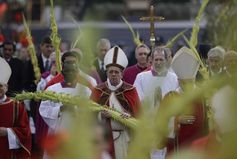
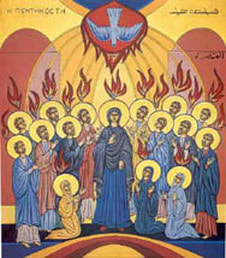
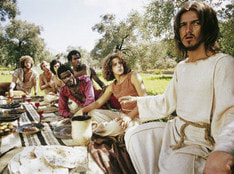
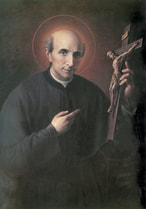
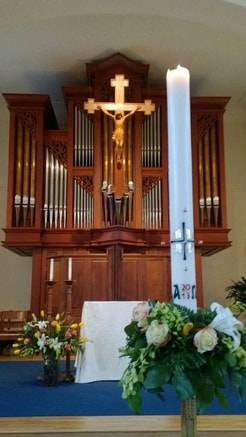
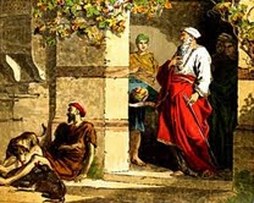
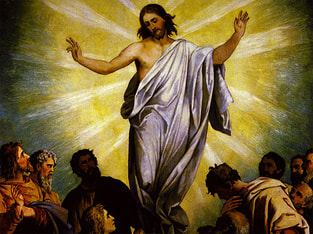
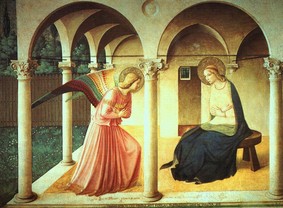
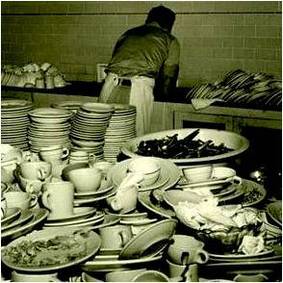
 RSS Feed
RSS Feed